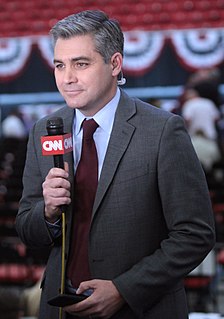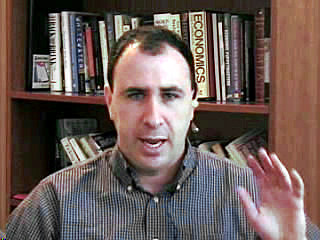A Quote by Jordan Peele
I think that is also something he [Barack Obama], in the beginning of his presidency, he couldn't really explore and couldn't show. He had to be almost a one-dimensional, stoic leader during that first election.
Related Quotes
Yes, Barack Obama had his clashes with the press. I witnessed those first-hand covering the second term of his administration. But we did not have Barack Obama on almost a weekly basis referring to the press as the enemy of the people and accusing reporters of treason and calling legitimate stories fake news.
This is a column collection, or as one colleague called it, "history in real time," recounting my perspective on the highs and lows of this presidency from an African-American perspective. More than simply a column collection, the book has a substantial introduction that frames the [Barack] Obama presidency, explores the way Obama was treated by the political establishment and also how this first black president treated "his" people. In the epilogue, I use numbers to tell the story of African-American gains and losses during this presidency.
That distinctive presidential conduct is now gone forever, banished to the snows of yesteryear by Barack Obama. From the beginning of his presidency to the present, he has spoken specifically and in unprecedented fashion of Republicans as his rivals, his stumbling blocks, the primary cause of his troubles.
As was demonstrated back in 2012, [Barack] Obama was thought to be in big trouble after that first debate, and he wasn't, was he? That first debate didn't end up hurting Barack Obama at all, did it? I know he had incumbancy on his side, but still. He was horrible that first debate. It didn't matter because there were two more, and there are two more here.
At the same time, you had Barack Obama as a president. You had Hillary Clinton on track, all the Democrats looking good. And, you know, Donald Trump was just an entertaining buffoon to watch. And, over time, you came to realize that Donald Trump was appealing to a lot of people with his populist message. And, slowly, I think, even as a show, we started shifting in tone as the election started shifting.
One of the things that you come pretty early on to understand in this job, and you start figuring out even during the course of the campaign, is that there's Barack Obama the person and there's Barack Obama the symbol, or the office holder, or what people are seeing on television, or just a representative of power. And so when people criticize or respond negatively to me, usually they're responding to this character that they're seeing on TV called Barack Obama, or to the office of the presidency and the White House and what that represents.
Shakespeare villains were extraordinary. Macbeth, Iago, Richard III... They're so richly layered that a British actor would find it almost impossible to create a two-dimensional villain, if he's explored in his early years or continues to explore his Shakespearean heritage. You can almost not judge them, if they're played really well.




































